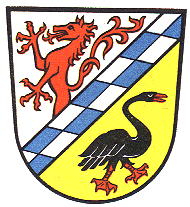Eggenfelden (kreis): Difference between revisions
Knorrepoes (talk | contribs) m (Text replace - "'''Origin/meaning :'''<br/>" to "====Origin/meaning====") |
Knorrepoes (talk | contribs) m (Text replace - "|width="15%"|50 px|right |} " to "|width="15%"|50 px|right |}<seo title="Wappen, Gemeindewappen" /> ") |
||
| Line 3: | Line 3: | ||
|width="70%" align="center" |'''Heraldry of the World<br/>Civic heraldry of [[Germany]] - [[Deutsche Wappen|Deutsche Wappen (Gemeindewappen/Kreiswappen)]]''' | |width="70%" align="center" |'''Heraldry of the World<br/>Civic heraldry of [[Germany]] - [[Deutsche Wappen|Deutsche Wappen (Gemeindewappen/Kreiswappen)]]''' | ||
|width="15%"|[[File:Germany.jpg|50 px|right]] | |width="15%"|[[File:Germany.jpg|50 px|right]] | ||
|} | |}<seo title="Wappen, Gemeindewappen" /> | ||
'''EGGENFELDEN (EG)''' | '''EGGENFELDEN (EG)''' | ||
Revision as of 19:16, 5 November 2012
| Heraldry of the World Civic heraldry of Germany - Deutsche Wappen (Gemeindewappen/Kreiswappen) |
EGGENFELDEN (EG)
State : Bayern
Incorporated into : 1973 Rottal-Inn
Origin/meaning
The arms were granted on August 27, 1963.
The area originally was ruled by the Counts of Ortenburg, who descended from the Counts of Spanheim. The upper right part of the arms thus shows the panther from the arms of Spanheim. The chequered bend is derived from the arms of the Wittelsbach family and Bayern, the successors of the Counts of Sponheim in the 13th century.
The black stork in the lower part is a Uttenschwalbe (I don't know the English word), and was used by the Von Closen family in their arms. This family held several estates in the district and thus played a major role in its history.
Literature : Stadler, K. : Deutsche Wappen - Bundesrepublik Deutschland. Angelsachsen Verlag, 1964-1971, 8 volumes.

